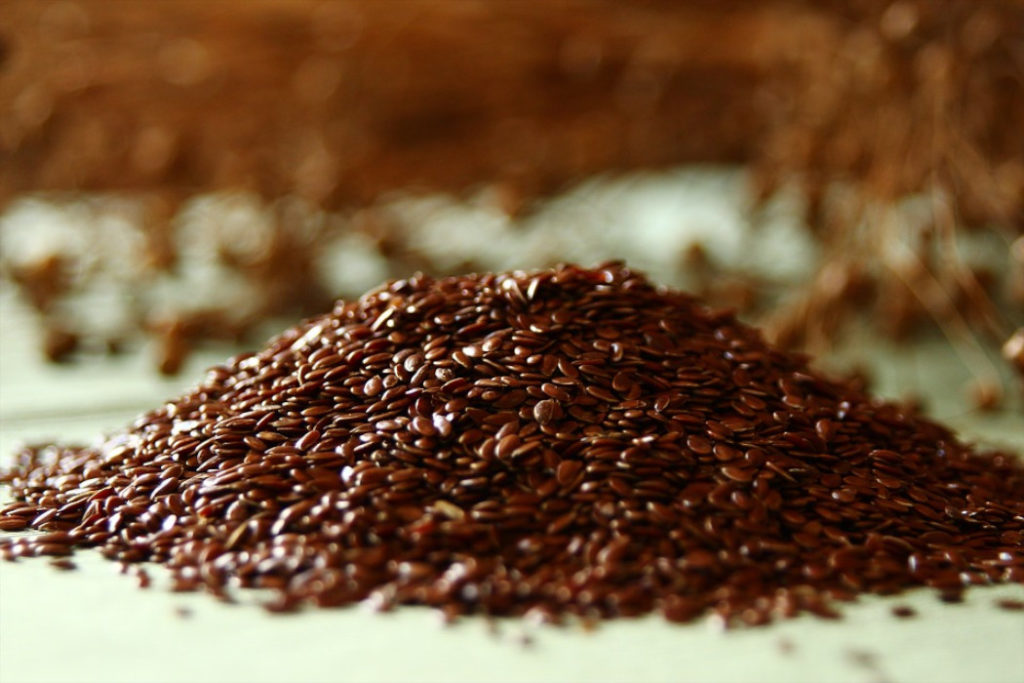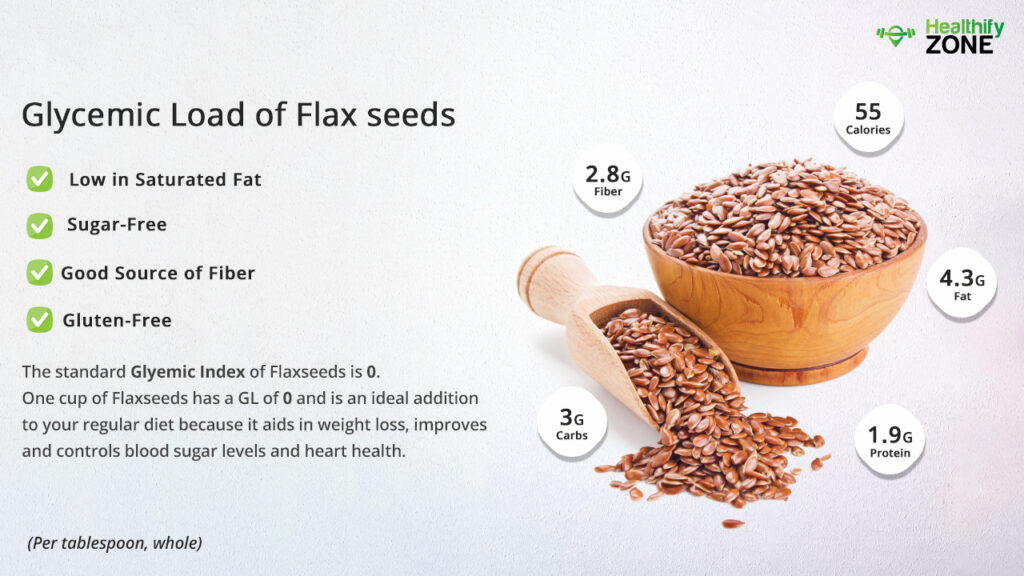The presence of carbohydrates in food and the rapidity with which it increases your blood glucose levels is characterized by the Glycemic Load. The Glycemic Index assigns a numeric score to each food item based on how it affects your blood glucose levels. This is an easy way of making healthy diet choices. Glucose has a high blood glucose response in comparison to fructose.
Flaxseeds are commonly also known as linseeds and are basically oil seeds. They have recently gained a lot of traction and are being known as a health food. The International GI Tables have shown that Flaxseeds have a GI of 0. You can very easily incorporate it into your diet, and the easiest method for the same is by grinding it, and it will also help you make the most of their health benefits.

Flaxseeds are known to be packed with nutrients like:
Protein
Omega 6 fatty acids
Omega 3
Thiamine
Copper
Molybdenum
Magnesium
Phosphorous
Plant Compounds
How to Calculate Glycemic Load of Flaxseeds?
The standard Glycemic index of flaxseeds is NA. The high glycemic index of the fruit helps in reducing the risks related to cardiovascular diseases. If we want to talk about diet, the key to prevent diabetes or any chronic illness is to distribute the carbohydrate consumption content throughout the day and manage the sugar levels in the body correctly—however, the glycemic load for one tablespoon of flaxseeds is 0 since it has very low carbohydrate content and the majority of it is fiber.
The Formula/Procedure For Calculation of Glycemic Index of the Flaxseeds :
GL = GI * carbs / 100
where
- GL – glycemic load;
- GI – glycemic index;
- and carbs – the amount of carbohydrates in the portion.
| SL.NO | FLAXSEEDS BY WEIGHT IN (g) | GLYCEMIC LOAD |
| 1. | 10 g of Flaxseeds | |
| 2. | 25 g of Flaxseeds | |
| 3. | 50 g of Flaxseeds | |
| 4. | 100 g of Flaxseeds | |
| 5. | One Tablespoon of Flaxseeds | |
Is Flaxseeds Safe to Consume If You Have Diabetes?
There have been studies with people with type 2 diabetes. It has been proven that supplementing 10-20 grams of flaxseed every day of 1 to 2 months can help reduce blood glucose levels by almost 20%. Even though more studies are yet to be done to successfully prove the link between flaxseed and diabetes, it is a safe addition to your diet. Given that it has 0 GI, it is pretty obvious that it will not cause a high in your blood sugar levels.
Can I Eat Flaxseeds During a Fat-Loss Diet?
You can eat flaxseeds during a strict fat-loss diet. It has soluble fibre, which becomes very sticky when mixed with water. The fiber present suppresses hunger and promotes fat loss.

- You can grind flax seed and consume it every day.
- You can also consume flax seed oil.
- Flaxseeds cna be used as a salad topping and is premissible in a fat-loss diet.
Can I Eat Flaxseeds During a Low-Carbohydrate Diet?
You can eat flaxseeds during a strict low-carb diet. Flaxseed has 29% carbs and mostly contains fibre, which means that it has low net-digestible carbs, which makes it a low-carb food.
Is Flaxseeds High in Sugar?
100 g of flaxseeds have 1.6 g of sugar. This essentially means that the sugar content in it is very low. It also is very low in carbohydrates. You can consume it regularly, and it will help in weight loss, improve and control blood sugar levels and heart health.